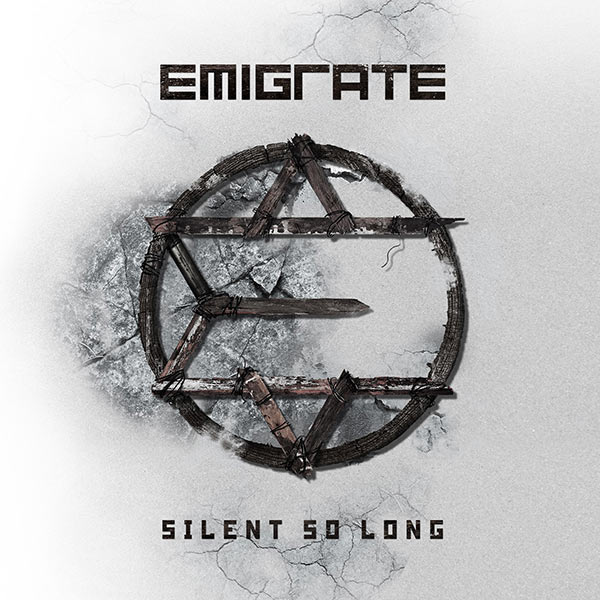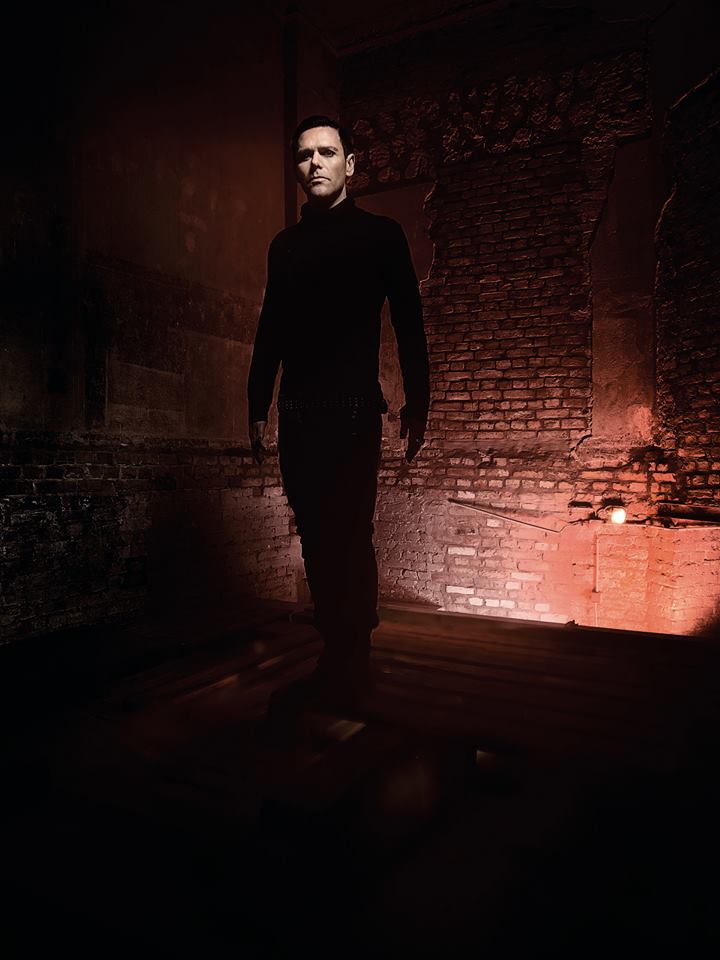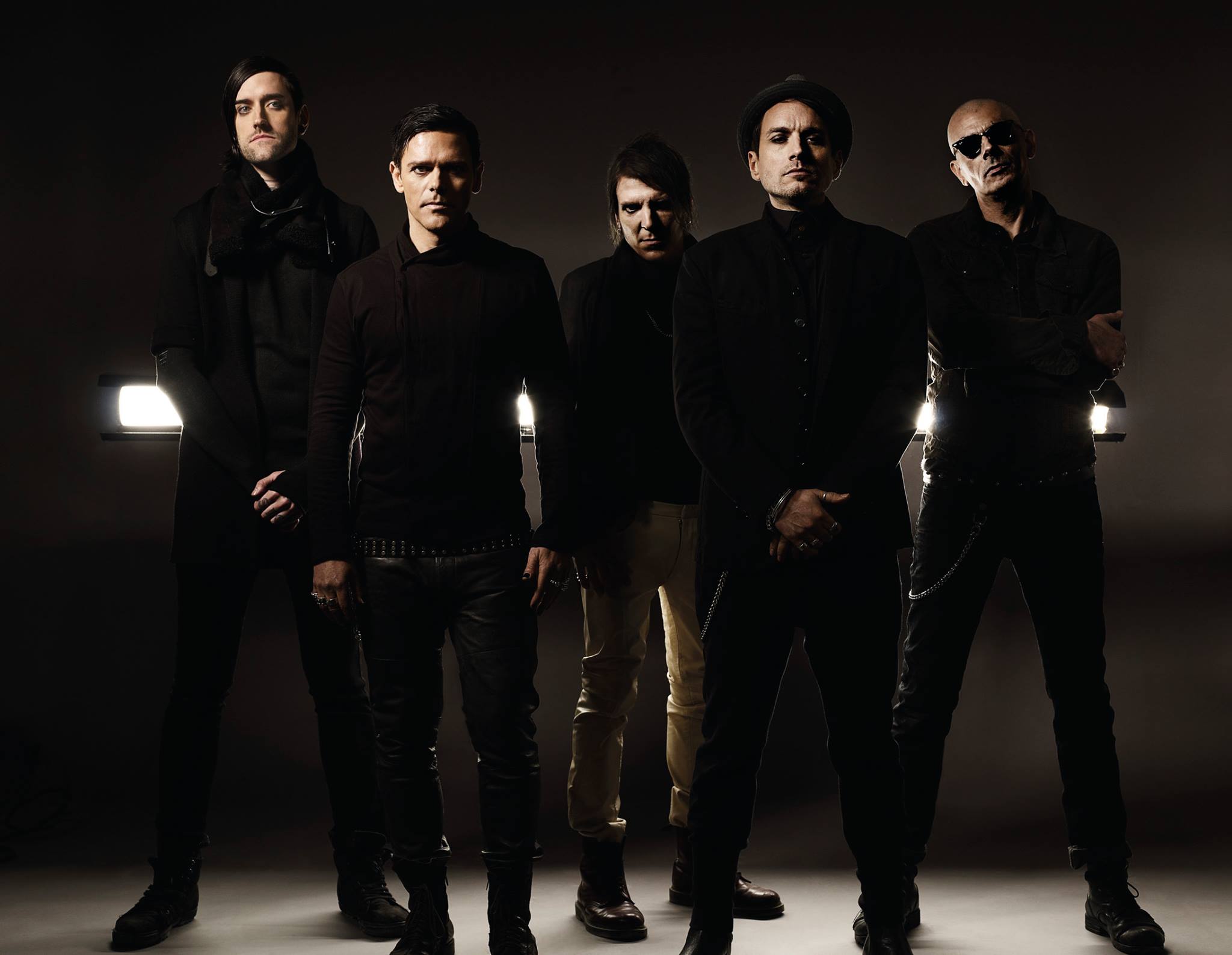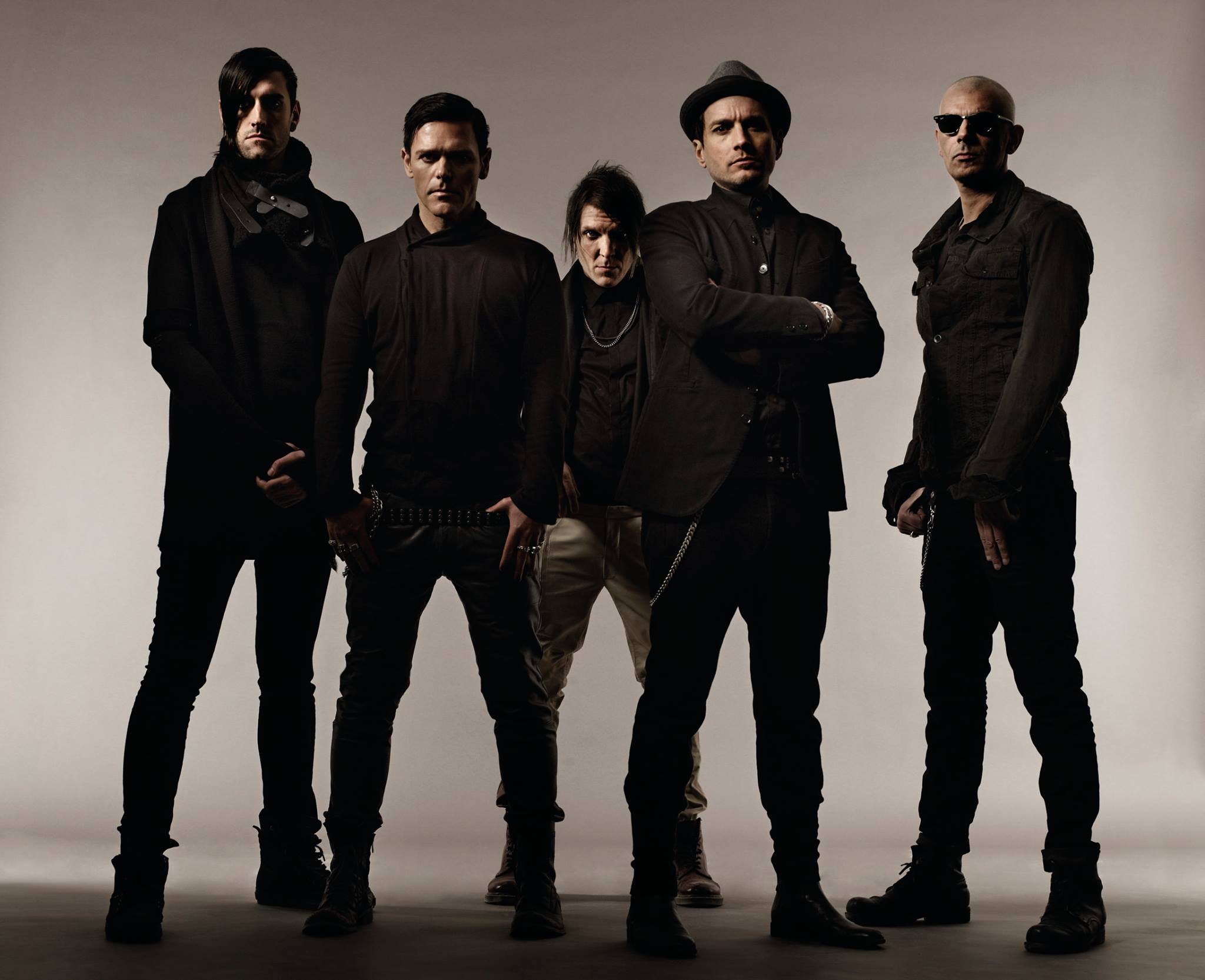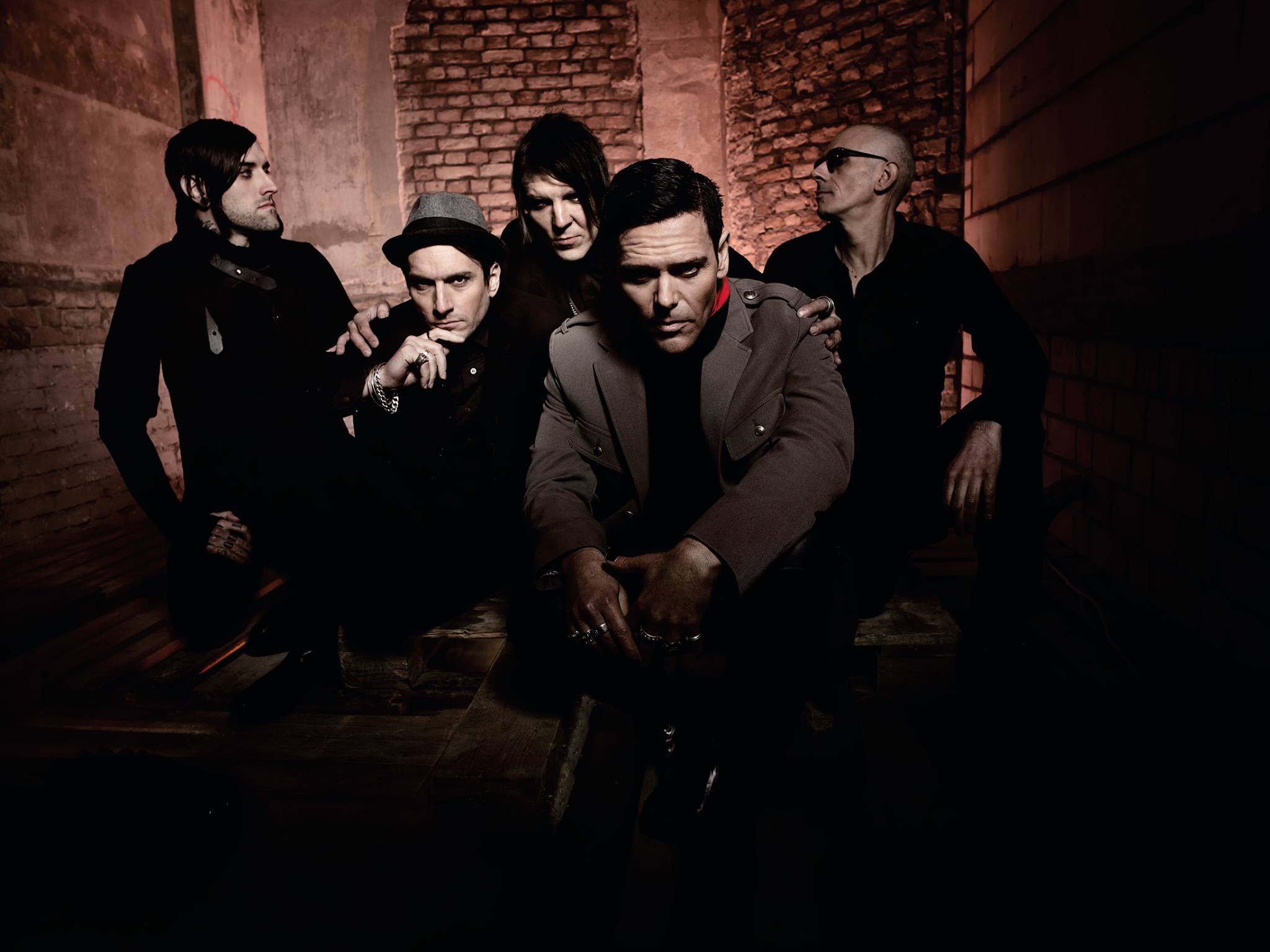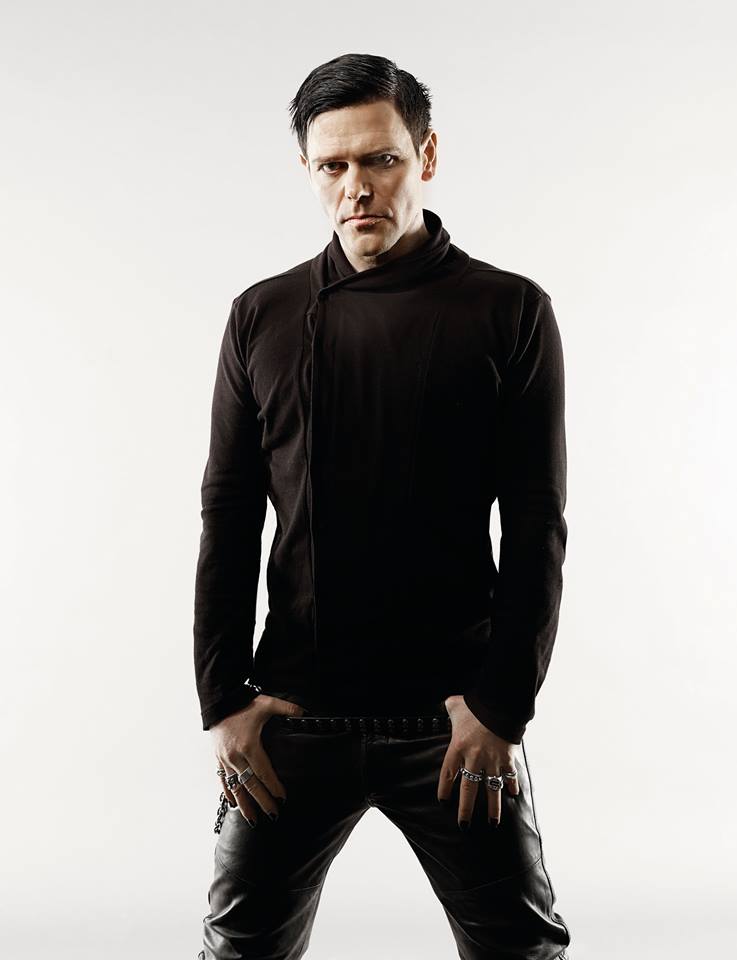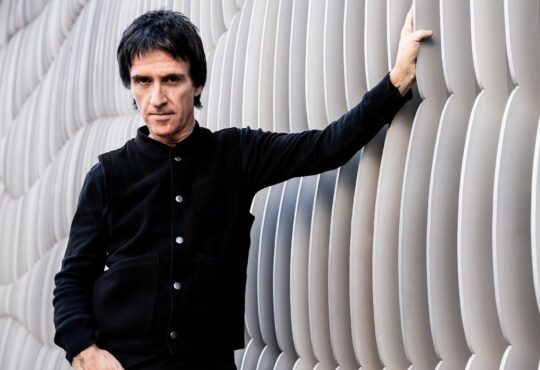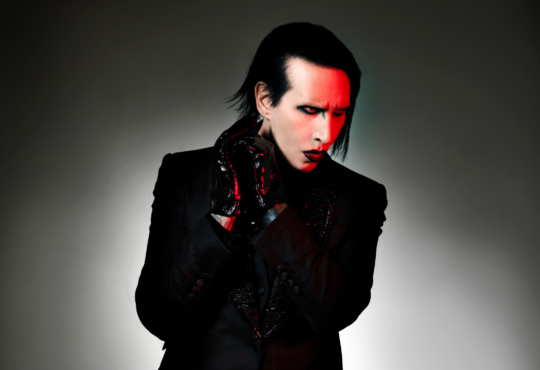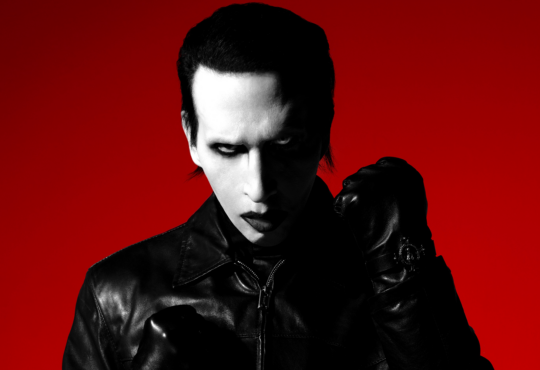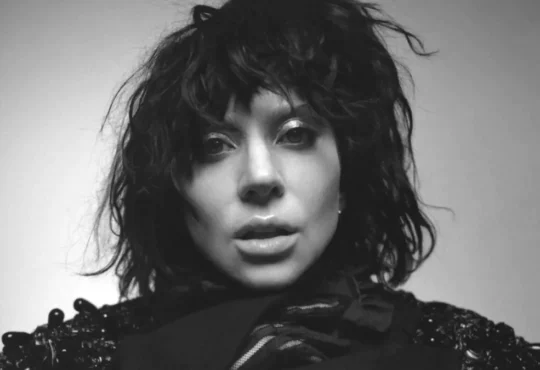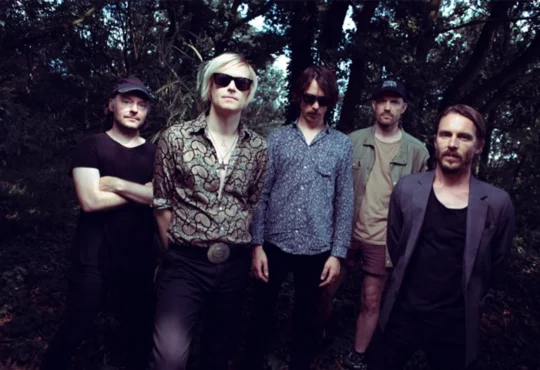RockUrLife had the chance to meet Richard Z. Krupse and Arnaud Giroux on a palace’s terrace, near the Champs Elysées. Together, we discussed the new album “Silent So Long”.
Hi guys, how are you?
Arnaud Giroux (bass): Very good.
Richard Z. Krupse (vocals/guitar): Good! Always a trip, to be in Paris. Always nice. Unfortunately, we haven’t got a lot of time here. Because we just came last night and we have to go back tonight to Munich. Just one day.
A: We’re on a mission.
So you’re back with a second album, “Silent So Long” which will be released in a few months, how do you feel a month before its release? Excited? Anxious?
R: Not anxious at all! No, not at all actually. This is different between the first and the second record. This time I feel that I could have done anything different. Besides, not playing so many guitars on it. I did a lot of records, you know, where I felt like “hum, I could have done this different”. But this time I realize that there’s nothing else I could have done, besides not making it, so!
(laughs)
R: We’re really happy. Very happy I must say. So how do you like it?
We love it!
R: Oh thank you!
Especially the tracks with guests.
R: Yeah.
What’s the story behind the name “Silent So Long”? Does it refer to this seven years break between the first and this new record?
R: That’s your answer! (laughs)
A: That’s my answer?
R: Yeah would you like to?
A: Not necessary actually. No. We have a little tradition to nominate an album with one of the title song. But it could be interpreted this way, but it’s not necessary something that translate that fact that we took seven years to come up with this album. But indeed it took seven years to come up with this album, and it was also for a reason. It was mainly because we need to take our time, we didn’t want pressure, and we just want to come out with the work and the idea to be sure what we were doing and having the songs talking to us a little bit, feeling hungry. Because Richard is a very prolific person, and he’s laying out ideas pretty much every five minutes. So after a while, we have a huge amount of material. And we wanted to, just to take our time, just to listen to stuff and just work on the process when we felt it was the right time to do it.
R: So “Silent So Long” also kind of symbolises basically the storm before the calm. I should say the opposite of silence. It’s hard to explain but the artwork is not ready, but if you can see the artwork, you might understand what I’m talking about, so.
And what’s about the artwork? We only got the band’s logo for the promo version.
R: The logo is a nice logo though! (laughs) But we’re not ready yet. That’s why we have to postpone it. We still work on it every day, now we’re doing interviews as well.
How was the recording and writing process this time compared to the previous album?
R: It was definitely different because at first, on the previous record, we were more concentrated on finding first of all, the sound that we’re happy with. Secondly, we were concentrated on me, trying to deliver kind of the sound coming out from my mouth that kind of was okay! (laughs) Which was not easy at the beginning and I was really frustrated and I have a really hard time to listen to myself. And I wasn’t sure if I could do that. I was very unsecured. And being someone that didn’t know how to write, have rhythm, and playing guitars as good as I can, I was really frustrated. On the second record, Emigrate become something which I always thought could be an open source. Being in Rammstein for many many years I was thought a little bit “too closed”. I was long for something else, which was more on an open kind of project or band or whatever you wanna call it.
More freedom maybe?
R: Freedom of making decisions like we’re collaborating with other people, bringing other people in, not being afraid of doing mistakes that you do all the time. In other words, It just gives me the freedom to decide certain things on my own and with the team obviously as well. So it was different, I was more satisfying that we can concentrate on music more rather than being shut into silent basically.
A: Yeah, the first album was really about, when you’re like on your late thirty’s or early forty’s, and you’re two musicians with a lot of experiences and you starting something and you’re like “how do we start a band again?” I remember doing that when I was 16 but after a while you’re like “how do we wanted to sound like?” and the first album even though it was really like we were focusing. Richard is talking about the vocal process, but it was at first not that painful and secondly, I think that the main thing was also the fact that we wanna create a unique identity and that’s why the second album is interesting for us to come out and that’s we’re all excited, in fact the identity is there and now we’re taking things to the next level.
R: Also the second record gives us the future. Because I wasn’t sure, I was only sure because I promised I’ll do a second record, so I keep my promise but when I did this second record, i saw the future of Emigrate. And that’s the most important thing for me. This is fun finally finding other people, collaborating with other people as much as we like.
A: Stay playful.
For “Silent So Long” you produce the record with the other members like for the first record. But for the mix, with Ben Grosse. How did his name come in?
R: Well, I love Stefan (ed. Glaumann), he made almost all the Rammstein records. And he also made the first Emigrate record. And he’s a great guy and I love him to death. The problem was that he was losing his studio when he was moving to his apartment. And I was starting to make a different process. I was thinking “Ugh, going there and not knowing what it sounds like” And also the other thought I had was like “I had 21 tracks”. And I know how much time needed to mix a song, three months at Stockholm in the winter, not knowing what it sounds like, not a great idea. So I went back, and I was looking for another mixer. I was like thinking about records that inspired me as well, and there’s one record that sounds very cool which was the Disturbed record. And I was like “wow, cool, this is actually a good sound for our new record”, especially the drums, ’cause I was looking for someone who mix drums very well. ‘Cause guitars I know. And I remember this guy, Ben Grosse, and I called the man and also obviously it’s also a budget thing these days. There are people out there, much more, we want really expensive good guys, but they would never fit the budget. But I told him about the project, he fits the budget, he makes really impressive drums sounds and I was like “Man, it could be working.” So, L.A., sun… yes we can! (laughs)
There are a few guests such as Frank Dellé, Peaches, Lemmy Kilmister or Jonathan Davis on the new album. How did you choose these musicians to work with?
A: In fact, at first, it doesn’t come from any strategy.
R: By the tracks?
A: By the tracks. We have like this whole thing, Richard and I, that tracks are little bit like living entities, and there were moments when we were really hearing something. So we were like “OK let’s reach out this person”. But it was not necessary a calculation, it was really dictated by the music. I mean Manson, Peaches, Lemmy, Jonathan Davis, are on these tracks because we were really hearing them singing them. It couldn’t be anyone else.
It’s interesting to see that they all come for various musical backgrounds and each singer put their own signature on these tracks.
R: Yeah and that’s what we did, we didn’t add the number of people, on a piece of paper, “oh we have to fit a name”. We were listening to tracks and felt like “who would be the best singer for those tracks?” And sometimes they were cases like, people did something and we felt like “hum, that’s not what we were imagining, so they could do it again”. Everyone did an unbelievable job, I’m very proud. I think this is what I said, this is for me the key moment that just becomes the future. That becomes me, I can sing a little bit, as much as I like, but there’s other people that I admire and they’re good for the tracks, they can arrive. Let’s keep to music and the family of Emigrate. They actually symbolise a little bit the idea of Emigrate. If you see the logo you know, the circle of life, the E is like an emigrating out, challenging yourself, out of the comfort zone, that describes a little bit the idea behind it.
A: But it’s also interesting because they put their own signature like Marilyn Manson wrote to us that was very funny: “Hi, I’m gonna put my stank on it”. But it’s really like a collaboration because it really still sounds like Emigrate, but it doesn’t hurt at all the voice performances. And I really like how everybody plays the game. Lemmy he has so much respect from us, for doing this, being sick, and he did it anyway, that was for me, it was an amazing gesture. But everybody plays the game very nicely, it was just fun for everyone.
How was born this collaboration with Marilyn Manson on “Hypothetical”?
R: It was…
A: A trip.
R: No, but when it involves Manson there’s always an ask for drama and he gets drama. And he did a great performance. It took us a while to get where we want him, but he did great. I never met someone which as such a carrier as mine, actually. So we play together a song in Berlin for Rammstein and I was like “this guy, wow!” There’s a lot of darkness. (laughs)
A: He’s a black crow.
What is your favourite track on this record? Why?
R: It’s changing all the time. It’s like asking a father of eleven children and asking him “what is your favourite children?” That would change every day. It depends who is the most dominant. (laughs) At the moment, I love one track, because the reason why I like it it’s because it’s a little bit different. They all different. It’s called “Happy Times” and it kind of came out from a different way. The idea behind the song was so different, we change it, it sort of became a big deal for all of them. And I like that. Because it’s kind of analogic and modern at the same time, it’s really trippy.
A: Yeah yeah. The song turns very quickly, we had an original idea that we didn’t really felt it was working, but there’s something about this song that we liked. And then after, it was in fact a very very short process and we really like the result. Though that this song is a little bit unexpected, it was also create a little bit a different way.
R: And what is your favourite song?
A: Same. I’m going to just quote you for that. You have eleven kids, you don’t know which one to pick. I mean, it’s really definitely change depending the mood sometimes. I might like some songs and I’m listening to one in particular, and it changes, I have absolutely no idea. I really like my work on that song! (laughs) No, but I really don’t have a preference.
Would it be easier if you have to choose three tracks to define the best “Silent So Long”?
R: Again I can’t. I already chose 11 tracks out of 21. I mixed 21 tracks and there’s another record coming, it’s just the part one. So it’s for me, even like to took 11 tracks out of 21 was so difficult, because there was not one song that I felt like “hum… hum…” They all have their own identities, they all tried to get on the record, it was just a hard choice.
A: Yeah.
R: Because I still like the other guys to make the tracklist because a lot of people do not listening to the whole record. They still run through the tracklist and talk and listening a lot of time what could be the next song, so my choice would basically be musical.
A: It’s a little bit like a painting exhibit. I mean, it’s a whole, an album is a whole. You don’t get the painting all that once, or you go just for one. When you look on a piece of the painter you just see the progression, you see the consistence between the paintings and it’s the same for an album. It’s a trip also, starting to track one to the end. We’re trying to take people into a metal trip, just have them going into different emotions, different vibes, different moods.
We got three favourite tracks on his record.
R: Oh!
A: So you will tell us! (laughs)
Eat You Alive, Rock City and Silent So Long.
R: So here you go!
A: OK, so you answer for us!
(laughs)
What is the general impulse of these songs?
R: Well, “Eat You Alive” was actually inspired actually by a song called “Mein Teil”(ed. a Rammstein song), luck-wise a guy that ate the penis from each other for the other guy. (laughs) We’re trying to write a song about the guy about to get eaten. So there were the first inspiration when I thought about this song, it changes and became totally something else. When you write, you got one idea, it changes, the direction of the song, music wise, I don’t even know honestly.
A: I remember at some point, we wanted to have a little bit something that was of that heavy beat, but something that doesn’t sound like a boom song. I don’t know, it’s really hard to talk about the genesis of a song actually because sometimes, it’s a morphing process. He comes up with a guitar riff, he comes up with a beat, and we change a little bit the beat, we change a little bit the guitar riff and then after we found the sound. And then after we found a melody line, and except for the lyrics, there’s no really… and maybe the lyrics are changing.
R: For “Silent So Long” I came out with this riff, I play on the bass, on a real bass actually, I record it also. I’ve got this almost minimalistic feeling to it, and I like listening to it like twenty minutes, it has this kind of groove. That’s how came this song.
Yeah, that’s the longest track.
R: Yeah I could have done twenty minutes. (laughs) And “Rock City” it was a funny story because it was just a really poppy song, with a really cheesy, acoustic on the song that I had. I don’t know what to do, I actually played for Rammstein a couple of time and “oh no cheese!” so I played it to the team and the drummer pick up the drums, and he played a double tempo to the beat. And we just went along, “fuck, this is great!” Even like physically I have to play with him because he looked so cool I play this groove, so we were just like jamming along. And then this became this mix between Motorhead and some poppy melodies kind of things. And we said “wow, this is great for Lemmy”, this is a song inspired by playing live. So they all have little genesis in a way. But I don’t remember them, it was such a long time back. The first one “Eat You Alive”, musically, because I have this sequence in the beginning; and I have the drum beat, because this sequence gives you the impression of a different beat when the drum beat is kind of “Hey, you’re little off” I always liked that.
In three words, how would you describe it?
R: Moody, Modern and…
A: Mean.
R: It it mean?
A: Yeah! There’s certain meanness about it.
Richard, people always consider Emigrate as your solo project, but you work with a full band (Mikko Siren from Apocalyptica, Olson Involtini, Arnaud Giroux, Joe Letz (Combichrist)), how do you see Emigrate, as a solo project or as a potential full time band?
R: I always thought that Emigrate was a band, not a solo project. I mean, there always need one guy to initialize certain things, and it’s me! So I’m little bit the captain of the ship. And I love to be the captain. I took twenty years with Rammstein to realize that! (laughs) And it’s great to work in a team, I became a better team player. So to answer the question Emigrate will always be a collective of people, an open source of people who like to be involved, and there’s no project involved. But as I said before on the question on the second record, I realized there is a future for Emigrate, which I haven’t seen before the second record, so I think now we’re talking. There’s a future right now arriving on the horizon, there’s a following record coming as well. Again, this is an opening book. If we’re lucky, doing the right things, it could be a future. I was not always like that, so things come together slowly. I was lonely, now Arnaud is moving to Berlin, slowly surely we create something there.
A: We’re in business!
R: Yeah! (laughs)
What’s about the live performances?
R: It’s another thing. We have to leave the time, you have to want it, to plan. So we will come.
So any chance to see you soon in France?
R: I’m marry to the French right now! (laughs)
A: Yes obviously, definitely we will back for sure.
Richard, we know that you’re here to promote Emigrate, but we have to ask you this question: What’s about Rammstein’s current status and plans for the future?
R: The current state is that we have a break. That’s when everyone do what they wanna do! (laughs) Once a year, we always meet up for a week, eating a lot of meet. Because our singer is a hunter. He hunts a lot of meat and the free time during the year, after we come together and eat everything, there’s another year to shoot, so next year we come meet again and we will decide what to do, but at the moment, there’s no plan.
Anything else to add especially for the French fans?
R: There’s one thing and there’s no joke here, I always get treated really really well here in France. That’s why I wanna say thank you.
In order to conclude here’s our traditional question: as our website is called “RockUrLife”, what rocks your life guys?
R: At the moment, it’s changing. At the moment, what rocks my life, is at seven on the morning when my little daughter jumping on my bed and on my stomach, she rocks my life.
A: And me, what rocks my life right now is drawing actually and going back to drawing. I’m passionate about graphic arts so I’m going back to drawing. That rocks my life.
OK thank you!
R: All right thank you!
Website: emigrate.eu




